
Martin Schaefer
Postdoctoral Researcher in Cognitive Neuroscience and Behavioral Psychology, Karolinska Institutet
Less ![]()

Martin Schiavenato
Assistant Professor of Nursing, Gonzaga University
I am a former newborn intensive care unit nurse and passionate about educating the next generation of nurses and advanced practice nurses in the context of a healthcare system that sorely needs competent, innovative, compassionate clinicians with a fire for social justice. My work lies at the junction of technology and its application to improve healthcare. I am a medical device inventor and alumnus of the Robert Wood Johnson Nurse Faculty Scholars Program, and the Pain in Child Health program from the Canadian Institute of Health Research. Themes in my research include pain assessment, technology in care, and the environment.
Less ![]()

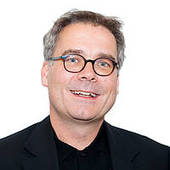

Martin Sharkey
Senior Post-Doctoral Researcher, University of Galway
My primary research area is in the investigation and ultimate removal of legacy and emerging hazardous contaminants from the environment, including: interventions and screening methods to remove hazardous additive chemicals from recycling streams to prevent contamination of clean plastic and textile materials; investigations of wastewater treatment systems, the release of treated water to the environment, and the use of by-products such as biosolid fertilisers in agricultural and industrial applications in order to assess environmental uptake of hazardous chemicals; proposing revisions to regulations relevant to the ubiquity of industrial chemicals in everyday applications and their uptake into the environment.
Thus far, I have co-authored three EPA technical reports and 16 peer-reviewed publications in high-impact international journals. These have thus far generated over 400 citations, along with h- and i10-indices of 8. I also have a broad range of teaching experience having lectured and demonstrated in undergraduate physics modules for several years, and the supervision of both undergraduate and post-graduate physics- and environmental science-based research projects. I have sat on the organising committees for multiple international conferences encompassing various environmental and health impact aspects of emerging contaminant research, and am part of several international organisations including the Institute of Physics and the International Waste Working Group, in order to stay apprised of and engaged with up-to-date knowledge in various fields of study.
I have advised on and worked on projects with multiple organisations towards the ends of removing harmful contaminants from circulation, improving waste management and recycling systems, and improving human and environmental health, including: the Environmental Protection Agency of Ireland; the Department of Agriculture, Food, and the Marine; Department of the Environment, Climate, and Communications; the UK’s Environment Agency, and the UK Department of Environmental and Rural Affairs.
Less ![]()
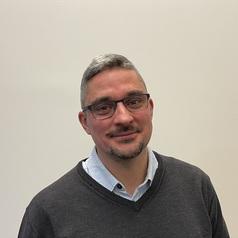
Martin Sokol
Associate Professor of Economic Geography, Trinity College Dublin
Dr. Martin Sokol is Associate Professor of Economic Geography at Trinity College Dublin, Ireland. His research focuses on central banks, monetary policy and financialisation, with special interest in the way central banks respond to crises, including the pandemic, the climate emergency and growing economic inequalities. He has a PhD in Economic Geography from Newcastle University, England, UK. He is one of the founding members of the Global Network on Financial Geography (FinGeo) and served as its first Secretary. Between 2016 and 2022, he led the European Research Council (ERC) project on new geographies of financialisation (Grant Agreement No 683197).
Less ![]()

Martin Stefanec
University assistant in biology, University of Graz
I am a university assistant at the University of Graz at the Institute of Biology. I recently finished my PhD in the Field of Excellence Complexity of Life in Basic Research and Innovation. My research includes the behaviour of honeybees in relation to the ecosystem they live in, the patterns that emerge in nature at different levels and theoretical principles that lead to emergence.
Less ![]()

Martin Stute
Professor of Environmental Science, Columbia University
When I was about eight-years-old, I did not speak to my parents for a whole day because they threw a banana peel out of our car, which I found was unacceptable from an environmental point of view. I knew early on that I wanted to dedicate my career to environmental issues and studied Physics, because there was no such thing as Environmental Science back then. My PhD thesis research topic at the University of Heidelberg focussed on novel tracer techniques to study the dynamics of ground water flow, and the use of ground water as an archive of paleoclimate. I have been interested in water issues ever since and can still hardly resist to take a plunge into a thermal spring I encounter or take a sip from a well that might tap an interesting aquifer. I believe that water will play an increasingly important role in our attempts to achieve a sustainable global development. I am also trying hard to be a decent teacher and undergraduate and graduate student adviser, because I think that is where faculty members have the most influence on the future of our planet.
Some of my projects include:
Health Effects and Geochemistry of Arsenic and Lead
San Andreas Fault Observatory at Depth (SAFOD/EarthScope)
Carbon Sequestration
Natural Gas Production by Hydraulic Fracturing
Less ![]()
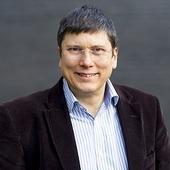
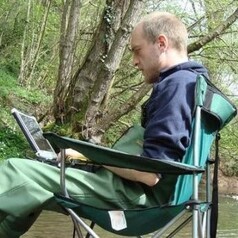
Martin Wilkes
Senior Lecturer of Life Sciences, University of Essex
As an ecologist with an industry background in data science, I am interested in data-driven explanations and predictions of biodiversity change.
Utilising large (river basin to global) scale datasets, ecological theory, statistical programming and high performance computing, my mission is to support the environmental science and management communities in finding solutions to the challenges of maintaining biodiversity, food production and water security in a changing world.
My research interests include ecology, biodiversity science, fisheries, eDNA metabarcoding, biogeography, metacommunity theory, artificial Intelligence, machine Learning, species distribution modelling, research software development.
Less ![]()
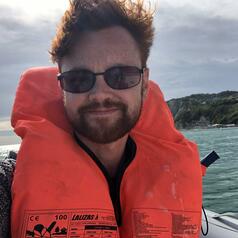
Martin D. Suttle
Lecturer in Planetary Science, The Open University
Dr Martin D. Suttle is a Lecturer in Planetary Science at the Open University, within the School of Physical Sciences. He holds a PhD in Planetary Science from Imperial College London and previously worked as a research associate at the University of Pisa and the Natural History Museum (London). Martin’s research specialises in the microanalysis of extraterrestrial materials (meteorites and micrometeorites). He studies water-rock interactions on asteroids and comets with the aim of understanding the role of water in the planet building process. Martin’s research also focuses on the flux of cosmic dust to the Earth both now and in the ancient geological past, investigating interactions between micrometeorites and Earth’s biosphere and atmosphere.
Less ![]()

Martin Ejnar Hansen
Reader in Political Science, Brunel University London
Martin Ejnar Hansen holds a PhD in political science from the University of Aarhus and is currently Reader in Political Science at Brunel University London. He specialises in comparative politics and public policy.
Less ![]()

Martin H. Trauth
Professor, University of Potsdam
Martin H. Trauth is a professor of paleoclimate dynamics at the University of Potsdam. After completing a degree in geophysics and geology, he started his career as a palaeoceanographer, working on questions of statistical uncertainties of paleoclimate time series. Then he became a paleolimnologist, working in the Argentine Andes, involved in the consequences of climate change in areas with extreme relief, also here with a strongly quantitative reconstructive and modelling approach. Recent work has focused on the statistical classification of climate change in order to better understand the relationship between climate and human evolution.
Martin H. Trauth published more than one hundred peer-reviewed papers in high impact journals such as Science, Nature Geosciences, Nature Communications and the Proceedings of the National Academy of Sciences of the United States of America. He also authored six bestselling textbooks on collection, processing, analysis and presentation of geoscientific data with SpringerNature, including the popular MATLAB Recipes for Earth Sciences, which will be published in its 6th edition in 2024. Martin H. Trauth has published a large number of popular science works and has been involved in television documentaries on various topics in an active or advisory capacity.
Since ~30 years Martin H. Trauth has taught courses mostly in data analysis in earth sciences and science communication. He also directed five international summer schools funded by the Volkswagen Foundation with 25-70 participants and 15-20 lecturers in Ethiopia, Kenya, Tanzania, Germany–and during the Covid19 pandemic–online. He has supervised numerous bachelor's, master's and doctoral theses by young scientists who now hold positions of responsibility in geosciences in the private sector and in science. He is also very involved in communicating scientific knowledge to the public, above all in the context of the Potsdam Children's University with lectures for up to 1450 children aged 8-10, Open Day and Science Day, lectures for schools and the Society for the Gifted Child.
Less ![]()
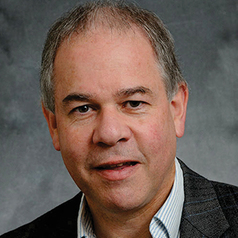
Martin J. Head
Professor of Earth Sciences, Brock University
Martin studies modern and fossil (especially late Cenozoic) marine dinoflagellate cysts for their intrinsic value in understanding the development of modern plankton, and for their utility in solving stratigraphic and palaeoecological problems. He maintains an association with the Quaternary Palaeoenvironments Group at the University of Cambridge.
Specific research interests and activities include:
Palynology and the deep-sea record, particularly ODP Leg 105 (Baffin Bay and the Labrador Sea) and ODP Leg 144 (western Pacific) where he served as shipboard palynologist, and the North Atlantic DSDP Sites 603 and 610.
Eemian (last interglacial) dinoflagellates of the Baltic Sea, as part of the EC-Funded BALTEEM project.
Late Cenozoic dinoflagellates of the Black Sea, Mediterranean and Paratethys
High-latitude Cenozoic palynology (e.g. East Canadian Arctic, Spitsbergen, Alaska, Sakhalin Island: spores, pollen, dinoflagellates)
Plio-Pleistocene palynology (spores, pollen, dinoflagellates) of the southern North Sea basin
Dinoflagellate cyst record of the Early–Middle Pleistocene transition in the Mediterranean
Neogene dinoflagellates worldwide
Morphology, taxonomy and nomenclature of living and late Cenozoic dinoflagellates
Less ![]()
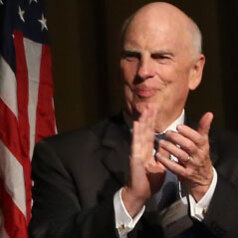
Martin J. Pasqualetti
Professor of Geography and Senior Global Futures Scientist, Arizona State University
Dr. Martin J. Pasqualetti is a Professor of Geography in the School of Geographical Sciences and Urban Planning and a Senior Global Futures Scientist in the Julie Ann Wrigley Global Futures Laboratory, both at Arizona State University. He concentrates on matters of energy and society, and has written extensively on the subject of energy landscapes. In acknowledgemen of his lifelong contributions to energy studies, he was honored with the Alexander and Ilse Melamid Gold Medal from the American Geographical Society (2015); Distinguished Alumnus of the Year by the University of California (Riverside) (2018); and Elected Fellow of the American Association of Geographers (2019). He has advised several agencies and NGOs, including the U.S. Department of Energy, the National Renewable Energy Laboratory, the U.S. Office of Technical Assessment, the National Academy of Sciences, the Arizona Office of Energy Policy, the Union of Concerned Scientists, and the Natural Resources Defense Council. His latest books include The Renewable Energy Landscape (Routledge) and The Thread of Energy (Oxford).
Less ![]()

Martina Baradel
Marie Curie postdoctoral researcher, University of Oxford
I am a postdoctoral researcher at the University of Oxford, conducting research on Japanese organised crime (yakuza) and emerging criminal groups in Japan.
Less ![]()
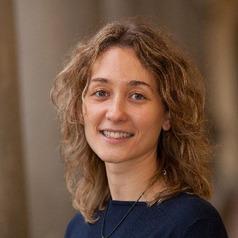
Martina Bozzola
Associate professor, School of Biological Sciences, Queen's University Belfast
Less ![]()
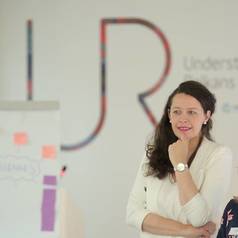
Martina Egedusevic
PhD Candidate, Impact Fellow (Green Futures Solutions), University of Exeter
Dr. Martina Egedusevic specializes in employing nature-based solutions that utilize natural processes to tackle environmental challenges. She provides expertise in managing flood risks, disaster risk reduction, and related environmental concerns. Born in Trebinje, Bosnia & Herzegovina, where she completed her secondary education, she later pursued university studies in Belgrade, Serbia, and earned her Ph.D. from Heriot-Watt University, Edinburgh, Scotland.
Currently an Impact Fellow at the University of Exeter’s Land, Environment, Economics, and Policy Institute (LEEP), Dr. Egedusevic’s research has focused on the role of woodland creation in mitigating flood risks in Scotland. Her early career began as a flood protection engineer at Srbijavode in Serbia, working on flood hazard mapping and mitigation strategies. She later joined the SENSUM project, investigating natural hazards like landslides and debris movement.
Her consultancy work at ARUP further expanded her expertise in climate adaptation and environmental risk management across the UK. Dr. Egedusevic’s career is marked by a deep commitment to using sustainable, nature-based solutions to enhance environmental resilience and disaster risk reduction globally.
Less ![]()

Martina Jakubchik-Paloheimo
Ph.D. Candidate, Department of Geography and Planning, Queen's University, Ontario
I have 11 years of international and Canadian experience with specialized knowledge in Mediation, Conflict Resolution, Qualitative research, Facilitation, Peace-building, Restorative Justice and Reconciliation. As a Educator, Mediator and Circle Keeper I bring a unique and highly diverse set of experiences to my teachings, research, project management and trainings. Being trained in International and cross-cultural settings in Canada, Haiti and Ireland. I bring a set of highly attuned skills to the projects I work with. I am competent in grant writing, conflict transformation process design, power rebalancing, Indigenous rights advocacy, consensus building and conflict coaching.
I have completed my Masters of Philosophy in International Peace Studies from Trinity College in Ireland and have obtained Advanced Dispute resolution training from York University, and the GlenCree Centre for Peace and Reconciliation. I have worked with and for NGO's, Government, and Communities. I am fluent in English, Portuguese, Spanish and can speak some Haitian Creole. I learned to speak both Spanish and Portuguese while living abroad in South America after completing my undergraduate degree in Philosophy and Environmental Studies. My experiences abroad and especially in Latin America, have created a passion for reconciling relations to our natural world and one another.
I am currently in my forth year of my PhD at Queens University working in Human Geography in the Heath, Environment and Communities lab working with Dr. Heather Castleden. My research is examining decolonial knowledge production, power in neocolonial extractive landscapes, feminist political ecology and geographies of peace in the Ecuadoran Amazon. I am working in collaboration and partnership with members of the Indigenous Shuar Community through community-based participatory research to preserve their ancestral territory and traditional ecological knowledge.
My research is also working to support their Community Based Eco-Tourism Projects, and broader Foundation founded by the Shuar for Indigenous peoples of the Ecuadorian Amazon and stewardship of their forests. Visit the project at: Inishanunka.org
Having travelled to 42 countries across the globe all of my experiences, studies, and have shaped my commitment to social and environmental justice. As of right now I am available for part-time consulting work at home in Toronto, remotely, and internationally. Over the next few months you will find me back and forth from the Ecuadorian Amazon, the site of my field research as I finish my disseration.
Less ![]()

Martina van Heerden
Senior Lecturer in English for Educational Development, University of the Western Cape
Martina van Heerden (PhD) is a senior lecturer at the University of the Western Cape. She teaches academic literacies to undergraduate science students and Literacy Studies to Linguistics Honours students. Her research interests encompass a range of learning and teaching topics, such as feedback literacy, peer review, academic development, and supervision.
Less ![]()

Martine Dennie
Assistant Professor, University of Manitoba
Assistant professor at the Faculty of Law at the University of Manitoba. PhD Candidate at the University of Calgary. Research areas include violence in hockey and assumption of risk and consent in sports.
Less ![]()

Martine Kropkowski
Tutor, The University of Queensland
Martine Kropkowski teaches professional and creative writing with the writing team at The University of Queensland. She is also a HDR candidate researching the role that language and community-generated narratives play in coercing and controlling members of cult-like organisations.
Less ![]()

Martinus Ariya Seta
Dosen, Universitas Sanata Dharma
Saat ini saya sedang menempuh study doktoral dalam bidang Pendidikan Agama di Universitas Julius Maximilian Würzburg Jerman. Bidang yang saya minati adalah pendidikan agama, filsafat agama dan teologi.
Less ![]()
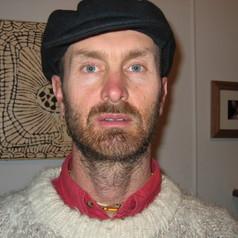
Marty Branagan
Senior Lecturer and Convenor of Peace Studies, University of New England
Marty is the author of the illustrated novel 'Locked On! The Seventh and Most Illegal in the Hitchhiker's Guide Trilogy' (2018), based on climate activism at Leard Forest and Bentley, NSW; and
'Global Warming, Militarism and Nonviolence: The Art of Active Resistance' (2013, Palgrave Macmillan), among other books.
Marty has published widely on nonviolence issues, including women in activism, recent developments in nonviolence, artistic activism, Australian eco-pax and social justice movements, nonviolence against Nazism, fossil fuel divestment and ethical investment.
He is also a long-term activist, exhibiting artist and rivercare volunteer.
Among many international conferences he has organised is 'Environmental and Sustainable Peace, Social Justice and Creative Activism: a conference celebrating 40 years of Peace Studies', UNE, 1-5 December 2022
Less ![]()

Marty Clark
Assistant Chair and Associate Professor, Department of Health and Physical Education, Mount Royal University
Marty has a passion for decolonization, diversity, inclusivity, and equity and teaches courses that use historical, philosophical, and sociological perspectives to examine health, physical activity, physical literacy, and sport. His main research interests are in the Scholarship of Teaching and Learning (SOTL) and the critical study of hockey in Canada.
Less ![]()

Marvin G. Powell
Associate Professor of Education, George Mason University
Marvin G. Powell, Ph.D. is an associate professor of quantitative methodology in the College of Education and Human Development, George Mason University. He conducts research in the assessment of the psychometric properties of educational and psychological instruments using a range of latent trait analyses including, structural equation modelling and item response theory. He is interested in answering research questions focusing on a critical lens while using QuantCrit and CRQI tools.
Less ![]()
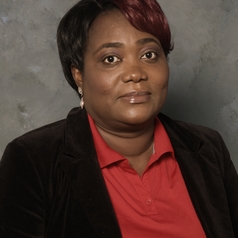
Mary Asirifi
Assistant Professor, Department of Nursing Foundations, MacEwan University
Mary Asirifi is an assistant professor at the Faculty of Nursing in MacEwan University. Mary joined MacEwan University in 2017 and is currently teaching undergraduate nursing courses. While Mary is originally from Ghana, where she completed her diploma and baccalaureate nursing education, her MN and PhD degrees are from the Faculty of Nursing at the University of Alberta. Mary achieved nurse registration with the College & Association of Registered Nurses of Alberta in Canada in 2013. She has clinical experience in medical-surgical nursing as a registered nurse in both Ghana and Alberta. Mary was a nurse tutor in Ghana.
Less ![]()
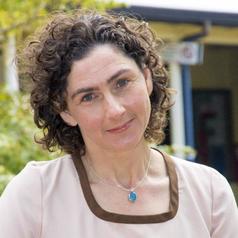
Mary Breheny
Associate Professor of Health Psychology, Te Herenga Waka — Victoria University of Wellington
Dr Mary Breheny is an Associate Professor of Health Psychology at Victoria University of Wellington. Her research examines how the experiences people have over their lives shape their health in older age.
Less ![]()


Mary Burke
Professor of English and Irish Literature concentration coordinator, University of Connecticut
Mary M. Burke is an English Professor at UConn and Director of its Irish Literature Concentration. Her book, "Race, Politics, and Irish-America: A Gothic History" was published by Oxford UP in 2022 (UK) / 2023 (US). She has also published a cultural history of Irish Travellers with OUP and collaborated with Tramp Press on the 2022 Juanita Casey "Horse of Selene" reissue. Her public-facing and creative work has placed with NPR, the Irish Times, Irish national broadcaster RTÉ, and Faber. Burke has held the NEH Keough-Naughton Fellowship at Notre Dame and a Boston College Ireland Visiting Research Fellowship, and is former chair of the MLA Irish Literature Committee. She was a 2022 Long Room Hub Fellow. at her alma mater, Trinity College Dublin.
https://english.uconn.edu/person/mary-burke/
Less ![]()

Mary Bushell
Clinical Assistant Professor in Pharmacy, University of Canberra
Dr Mary Bushell is a registered, accredited pharmacist and Senior Lecturer/ Clinical Assistant Professor. Since 2011, Mary has been the unit convener for 38 university units, teaching pharmacy, nursing and allied health students. Mary is a peer reviewer for several national and international journals and current edition textbooks. Mary has over thirty recent publications and is regularly invited to speak at conferences and deliver education sessions both in Australia and abroad. Mary has a research interest in vaccinations and the public health benefits they generate. Mary is passionate about evidence-based medicine and ensuring pharmacists have a seat at the table when discussing future health policy.
Less ![]()

Mary Dzon
Associate Professor of English, University of Tennessee
Professor Dzon teaches courses on early English literature and researches medieval devotional culture in late-medieval England. In addition to popular piety, her interests include medieval mysticism; medieval saints’ lives and romances; medieval conceptualizations of the lifecycle, gender and the body; animals studies; as well as visual and manuscript studies. Professor Dzon co-edited an essay collection and published a monograph on the medieval Christ Child. She has a forthcoming edition of Middle English poems on the childhood of Jesus, and continues to explore apocryphal traditions concerning Jesus and other figures connected with the Bible. She is currently working on an edition and translation of a Latin Life of the Virgin Mary and also a monograph on divine emotionality and Marian intercession in the later Middle Ages. An active participant in UTK’s interdisciplinary Marco Institute for Medieval and Renaissance Studies, Professor Dzon is happy to work with graduate students in various medieval fields. At the undergraduate level she particularly enjoys teaching Premodern Beasts, Chaucer, and Medieval Women’s Literary Culture. In general, she loves discovering and discussing with others the myriad unusual and striking sources from the Middle Ages.
Less ![]()
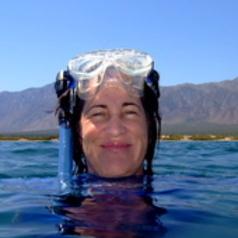
Mary Hagedorn
Research Scientist, Smithsonian Institution
Dr. Mary Hagedorn received her Ph.D. in Marine Biology from Scripps Institution of Oceanography and has been a Research Scientist at the Smithsonian Institution for the past 17 years. She has worked in aquatic ecosystems around the world from the Amazon to Africa, has taught many university-level classes, lectures frequently to lay audiences. In the past years, she has received several research grants from the National Institutes of Health to support her research and has collaborators in over 30 institutions throughout the world. In 2000, she received the prestigious George E. Burch Fellowship in Theoretic Medicine and Affiliated Theoretic Sciences and was nominated for the Pew Fellowship in Marine Conservation. Dr. Hagedorn is a marine physiologist whose work has broad conservation implications. She studies the conservation coral species using cryobiology- the study of cells under cold conditions. In this approach, cells are frozen and placed into liquid nitrogen where they can remain frozen, but alive for decades in a genetic bank. Dr. Hagedorn has created the first genome repository for endangered coral species and has distributed this germplasm to three banks around the world. If necessary, these banks could one day help reseed our oceans.
Less ![]()

Mary Hickson
Professor of Dietetics, University of Plymouth
Mary has been Professor of Dietetics at the University of Plymouth since 2016. Her research interests include all aspects of dietetic practice, sarcopenia and frailty, hospital nutritional care, and nutrition in older people. She also worked to produce the Nutrition and Covid-19 Recovery Knowledge Hub, which is a ‘one stop shop’ of information to support recovery from COVID-19 through nutritional care.
Less ![]()

Mary Mangai
Senior Lecturer, University of Pretoria
I acquired my Master’s degree in economic development and policy analysis from the University of Nottingham, United Kingdom. I obtained a PhD in management sciences from the Department of Public Administration, Radboud University Nijmegen, Netherlands.
I studied the effect of poverty on education in Nigeria during my Master's programme. My investigation of the effect of poverty on education shows that the “quantity-quality trade-off” is vital to the investment households are ready to make in the educational development of their children. Household per capita expenditure and fertility (the number of children in a household) were highly significant in explaining child school enrolment in Nigeria. Households with high per capita expenditure were found to invest more in their children’s education.
After my Master's’ programme my research interest shifted to the co-production (citizen inclusivity) of public services. Co-production is defined as the active and direct involvement of citizens in public services and policy cycles. Co-production is a resurgent topic in public administration and management research. The idea is that government alone should not develop and implement policies and/or services, citizens should be actively involved in the planning and delivery as well.
My research has focused on the co-production of public services (healthcare delivery and water provision) in Africa. Coproduction is still an emerging concept in Africa. The practice is widely used in innovative ways in developed countries, with citizens being asked to co-design, co-commission, co-assess, co-deliver, co-implement and co-execute public services.
I studied the coproduction of healthcare and water provision extensively in my PhD research. I research, in particular, the policy instruments required to sustain coproduction practice, the drivers of coproduction, citizen resourcefulness in coproduction practice, and the segmentation of coproduction in countries like Ghana, Nigeria and South Africa.
My research is now focused on the achievement of SDG 16 (peace and inclusive society) through the coproduction of neighbourhood security in South Africa and Germany by 2030. The pragmatic research approach is aimed at developing innovative and practical models of coproducing neighbourhood security in both countries. I hope that there will be ‘mutual learning’ from the contextual differences and/or similarities in neighbourhood security in these two countries.
Besides my research projects, I am a board member and a senior consultant at the Centre for Collective Learning and Action (CCoLA) – a non-governmental organisation at Leiden, Netherlands. My responsibilities at CCoLA include (i) developing diaspora humanitarianism capacity in the Netherlands, (ii) coaching and mentoring Dutch students studying global health at the University of Applied Science in Amsterdam during their internships and fieldwork in the health sector in Africa, and (iii) co-promoting the values and goals of CCoLA.
I am also a member of the International Institute of Administrative Studies (IIAS) Study Group on Coproduction of Public Services.
Lastly, I have blindly reviewed manuscripts for Administratio Publica, Journal of Public Administration and Governance (JPAG), Heliyon and Environmental health Insights journals.
Less ![]()
- Market Data























